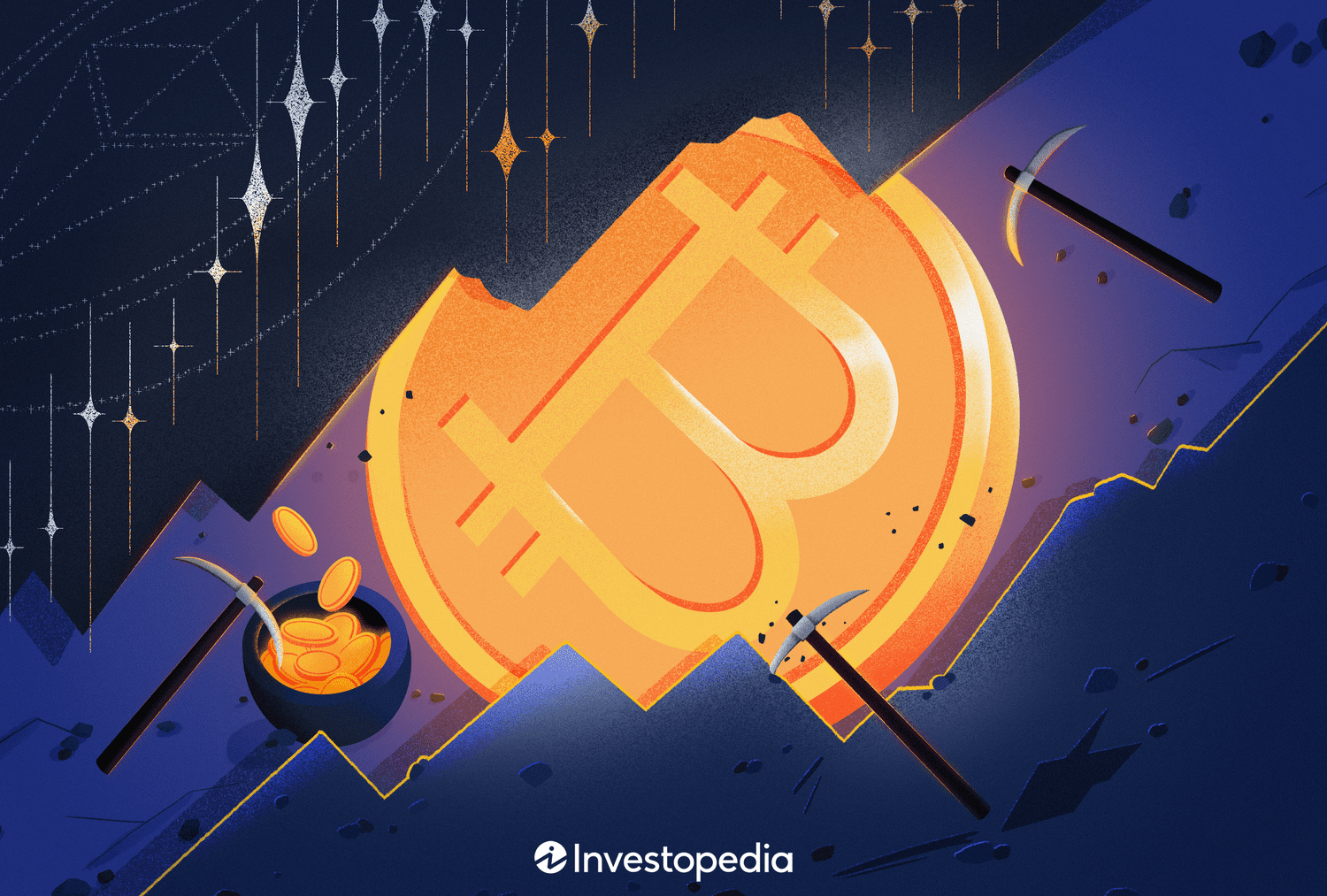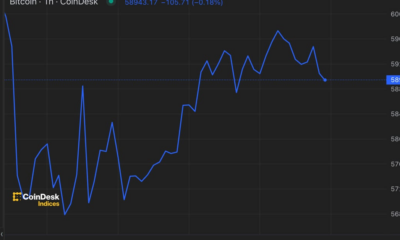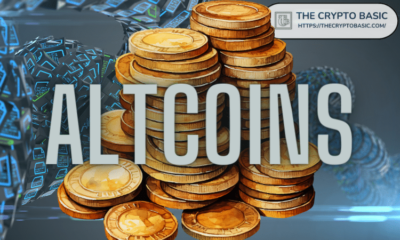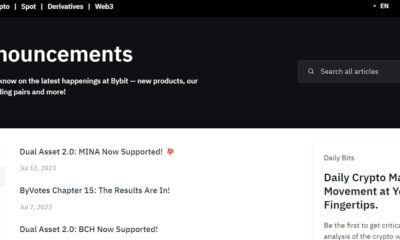News
Passwords are obsolete, go blockchain

Before you check your email, Instagram, or bank account, the first thing you probably do is enter your password. This amounts to little more than muscle memory because most people have already absorbed their passwords into their brains just like they do with a relative’s birthday or the score stats of their favorite athlete.
For a variety of reasons, many people choose not to use passwords at all when it comes to their devices, either because they feel they have nothing of value on their computers or because in their eyes it is unlikely that a hacker would do so. Others justify a minimal password, which might mean setting their laptop’s home screen credentials to “123456,” reusing an old login, or making small changes.
This type of negligence may not have had any consequences yet, but it is quite dangerous to not address it. Ask yourself a simple question: how similar is that password to the one protecting your most valuable materials? Unfortunately, the answer is usually that they are nearly identical.
Humans have a hard time remembering complex passwords for all their favorite apps, platforms, and accounts, so if they aren’t identical, they’re often pretty similar. Few people have the memory to hold dozens of long-tail phrases, and that presents a huge security risk as computing technology becomes more powerful. Fortunately, one of the BlockchainMore relevant uses will make these concepts obsolete.
What’s wrong with passwords?
Taking a strong password and changing it slightly isn’t a bad deterrent for humans trying to break into your device, but humans aren’t the ones doing the breaking. Using passwords requires us to remember them, which automatically means they’re easy enough for most computers to guess, given enough time. (See also: Can Bitcoin be hacked?)
Computers and their powerful algorithms can use brute force tactics to guess thousands of potential letter and number combinations in seconds, so it doesn’t matter how clever you think your password is. However, an easily guessable password is the easiest trap for most scammers. There are plenty of other ways they can get their hands on it and, from there, access the rest of your accounts and assets.
Phishing emails are designed to look like they’re from legitimate institutions and may trick you into “changing” your password or installing keylogging software that spies on your keystrokes. Regardless of how they do it, all of these methods are designed to capture your password and then uncover a breadcrumb trail to your other sensitive information. This is a threat to individuals, to be sure, but for businesses that still use passwords for work terminals, the risk is even greater. (See also: What is a “phishing scam” and how can you avoid it?)
When it comes down to it, the real problem with passwords is that they still exist. However, there were few alternatives available until blockchain began to show signs of maturity recently. (See also: Cyber Wars: How the US Stock Market Could Be Hacked)
Credentials courtesy of Blockchain
Blockchain is now spreading like wildfire through the tech mainstream, with developers and entrepreneurs alike marveling at its powerful decentralized methodology. One of the first proposed applications of blockchain was to create something called Self-sovereign IDthat uses encryption and network cohesion to change the way people identify themselves online.
The lowest layer of the blockchain is the public ledger that records all data transactions on its network and shares them in real time among active nodes. However, there is no central authority that organizes them. Instead, algorithmic consensus determines the veracity of transactions and their order in the ledger, creating a type of shared authority over what happens on the network.
Additionally, blockchain uses the highest standards of cryptography to create a layer between an individual’s public blockchain address and their true identity. A user is assigned a unique private ID, which is paired with the public ID that represents them on the chain.
When receiving data, such as in the form of a cryptocurrency exchange or message, the recipient must use their private ID to access it. This double-layer defense means that hackers have no way to corrupt the network, thanks to decentralization, but also to link identifying information to a single transaction or account.
Putting Next-Generation Passwords to the Test
Blockchain startups are already working to put the idea of a self-sovereign ID into practice, helping to make passwords a thing of the past. Companies like SelfKey are using this new authentication paradigm to give citizens of any country a standardized way to request and verify important documents across borders. Other companies like LastPassthat store encrypted passwords in private accounts, have attracted users’ attention in recent years.
Applying for a passport, opening a bank account, starting a charity, and other common processes are easier to manage when an individual has their own digital ID and can use it freely and securely, no matter how diverse the elements of their livelihood.
STAY It is a new generation access protection, and whose The token sale has reached its hard cap of $20 million in February — distills the most important ideas of blockchain into a streamlined application that serves a single, powerful purpose: the ability to log into any service more securely, especially since there are no passwords involved. Instead, the REMME blockchain stores a user’s unique device certificates on its decentralized network, so when they want to access a web property or application, they simply click the REMME button to log in. The application checks the registry to verify that the correct device certificate is pinging for entry, and immediately grants entry to the account.
Two-factor authentication strengthens the agreement, so if a user plausibly wanted to access their bank account, for example, they would have to press the button on their bank’s page but also confirm from their phone. Such a service is leagues away from the current generation password managers like LastPass or No Passwordand is already gaining popularity on the market.
These are some of the most advanced examples available of how blockchain is revolutionizing the idea of digital credentials. Users will no longer have to reconcile their memory with their security, nor will they trust their login information to centralized authorities. The result is a more secure way to manage our digital existence and a simple product that combats existing exploits in a simplified package. With these types of solutions on the horizon, it is only a matter of time before attacks like the one perpetrated against Equifax Servers last year they exist only in the dustbin of history. (See more: Have I Been Hacked? Find Out If the Equifax Breach Affects You)
Investing in cryptocurrencies and Initial Coin Offerings (“ICOs”) is highly risky and speculative, and this article is not a recommendation by Investopedia or the author to invest in cryptocurrencies or ICOs. Since each individual’s situation is unique, you should always consult with a qualified professional before making any financial decisions. Investopedia makes no representations or warranties as to the accuracy or timeliness of the information contained herein. The author owns cryptocurrencies as of the date this article was written.
News
Ether Drops Further After ETF Launch

Key points
- Spot ether ETFs began trading in the U.S. today, with the funds initially having more than $10 billion in collective assets under management.
- Analysts expect the launch of spot ether ETFs to have a net negative impact on the underlying price of ether in the near term, due to expected outflows from the pre-existing Grayscale Ethereum Trust.
- Spot Bitcoin ETFs continue to see strong inflows, with BlackRock’s IBIT alone seeing more than $500 million in inflows on Monday.
- Franklin Templeton, a spot ETF issuer on bitcoin and ether, has invested in a project that intends to bring Ethereum technology to Bitcoin.
Nine-point ether exchange-traded funds (ETFs)) started trading on the stock market on Tuesday, but all the optimism ahead of their approval did not translate into gains for the cryptocurrency markets.
Ether (ETH), the native cryptocurrency of the Ethereum blockchain, dropped less than 1% around the $3,400 level as of 1:30 PM ET, while Bitcoin (BTC) fell more than 2% to around $66,000.
Ether ETFs’ Debut Isn’t as Flashy as Bitcoin ETFs’
Spot ether ETFs began trading at just over $10 billion assets under management (AUM)), according to Bloomberg Intelligence analyst James Seyffart, most of that money is in the current Grayscale Ethereum Trust (ETHE) which has now been converted into an ETF.
“In the long term, Grayscale will simultaneously have the highest and lowest fees in the market. The asset manager’s decision to keep its ETHE fee at 2.5% could lead to outflows from the fund,” Kaiko Research said in a note on Monday.
Outflows from ETHE, if they occur, would be similar to those faced by Grayscale’s Bitcoin Trust (GBTC) after spot bitcoin ETFs began trading in January of this year, most likely due to high fees for the two original funds. Grayscale’s existing fund charges 2.5% fees, while a new “mini” ether ETF will charge 0.15% and commissions for other ETFs are set at 0.25% or less.
Such outflows could impact the price of ether and market sentiment.
“There could be a pullback shortly after the launch of Ethereum spot ETFs, i.e. outflows from Grayscale Ether Trust could dampen market sentiment in the short term,” Jupiter Zheng, a partner at Hashkey Capital’s liquid fund, told The Block.
But Grayscale remains optimistic.
“Compared to the splashy debut of spot bitcoin ETPs in January, the launch of ethereum ETPs has been relatively muted,” said Zach Pandl, Grayscale’s head of research, adding that investors may be “undervaluing” ether ETFs that are “coming to the U.S. market in tandem with a shift in U.S. cryptocurrency policy and the adoption of tokenization by major financial institutions.”
Bitcoin ETF Inflows Continue to Rise
As for bitcoin, there is clearly no lack of demand for spot ETFs, such as BlackRock’s iShares Bitcoin Trust (IBITS) recorded its sixth-largest day of inflows in its short history on Monday, at $526.7 million, according to data from Farside Investors. Daily inflows for the overall spot bitcoin ETF market also hit their highest level since June 5.
In particular, asset manager Franklin Templeton, which has issued both bitcoin and ether ETFs, appears to have decided to cover its back when it comes to Ethereum by investing in Bitlayer, a way to implement Ethereum technology on a second-layer Bitcoin network, according to CoinDesk.
News
Spot Ether ETFs Start Trading Today: Here’s What You Need to Know

Key points
- Spot ether ETFs will begin trading on U.S. exchanges on Tuesday. Nine ETFs will trade on Cboe BZX, Nasdaq and NYSE Arca.
- Ether ETFs offer investors exposure to the price of their underlying assets.
- Commissions on these new ETFs generally range from 0.15% to 0.25%.
- These ETFs do not provide exposure to Ethereum staking.
The U.S. Securities and Exchange Commission (SEC) has officially approved nine ether spots (ETH)exchange-traded funds (ETFs) for trading on U.S. exchanges. Trading for these new cryptocurrency investment vehicles begins today. Here’s everything you need to know.
What new ether ETFs are starting to trade today?
Spot ether ETFs starting trading today can be found at Quotation, NYSE Arkand Cboe BZX. Here’s a breakdown of each ETF you can find on these three exchanges, along with the fund tickers:
Cboe BZX will list the Invesco Galaxy Ethereum ETF (QETH), the 21Shares Core Ethereum ETF (CETH), the Fidelity Ethereum Fund (FETH), the Franklin Ethereum ETF (EZET) and the VanEck Ethereum ETF (ETHV).
Nasdaq will have the iShares Ethereum Trust ETF (ETHA) created by BlackRock, which also operates the largest spot bitcoin ETF under the ticker IBIT.
NYSE Arca will list the Bitwise Ethereum ETF (ETHW) and the Grayscale Ethereum Trust (ETHE). The Grayscale Ethereum Mini Trust (ETH), which will begin trading on the same exchange.
How does an ether ETF work?
Spot ether ETFs are intended to offer exposure to the price of ether held by the funds. Ether is the underlying cryptocurrency of the Ethereal network, the second largest crypto network by market capitalization.
ETF buyers are buying shares of funds that hold ether on behalf of their shareholders. Different spot ether ETFs use different data sources when it comes to setting the price of ether. Grayscale Ethereum Trust, for example, uses the CoinDesk Ether Price Index.
None of the ETFs launching today include pointed etherwhich represents a potential opportunity cost associated with choosing an ETF over other options such as self-custody or a traditional cryptocurrency exchange.
Ether staking currently has an annual return of 3.32%, according to the Compass Staking Yield Reference Index Ethereum. However, it is possible that the SEC will eventually approve Ether staking held by ETFs.
How can I trade Ether ETFs?
ETFs can simplify the trading process for investors. In the case of cryptocurrencies, instead of taking full custody of the ether and taking care of your own private keysSpot ether ETFs allow investors to purchase the cryptocurrency underlying the Ethereum network through traditional brokerage accounts.
Today, not all brokers may offer their clients spot ETFs on cryptocurrencies.
What are the fees for ether ETFs?
The fees associated with each individual spot ether ETF were previously revealed In the S-1 OR S-3 (depending on the specific ETF) deposit associated with the offerings. These fees are 0.25% or less for all but one.
The Grayscale Ethereum Trust, which converts to an ETF, has a fee of 2.5%. The Grayscale Mini Ethereum Trust has the lowest fee at 0.15%. These fees are charged on an annual basis for the provider’s management of the fund and are in line with what was previously seen with spot bitcoin ETFs.
Brokers may also charge their own fees for cryptocurrency trading.
News
Kamala Harris Odds Surge Amid $81M Fundraise. What Does It Mean for Bitcoin and Cryptocurrencies?

Market odds and memecoins related to US Vice President Kamala Harris have soared as the latest round of donations tied to the Democratic campaign raised $81 million in 24 hours, bolstering sentiment among some traders.
The odds of Harris being declared the Democratic nominee have risen further to 90% on cryptocurrency betting app Polymarket, up from 80% on Monday and setting a new high.
Previously, in early July, bettors were only betting on 8%, but that changed on Saturday when incumbent President Joe Biden announced he would no longer run in the November election. Biden then approved Harris as a candidate.
Polymarket traders placed $28.6 million in bets in favor of Harris, the data showsThe second favorite is Michelle Obama.
Somewhere else, Memecoin KAMA based on Solanaa political meme token modeled after Harris, has jumped 62% to set a new all-time high of 2 cents at a market cap of $27 million. The token is up a whopping 4,000% from its June 18 low of $0.00061, buoyed primarily by the possibility of Harris becoming president.
As such, Harris has yet to publicly comment on cryptocurrencies or her strategy for the growing market. On the other hand, Republican candidate Donald Trump has expressed support for the cryptocurrency market and is expected to appear at the Bitcoin 2024 conference on Saturday.
However, some expect Harris or the Democratic Party to mention the sector in the coming weeks, which could impact price action.
“While he has not yet received the official nomination, there is consensus that last night’s development is in line with current Democratic strategy,” cryptocurrency trading firm Wintermute said in a Monday note emailed to CoinDesk. “Keep an eye on Democrats’ comments on this issue in the coming days.
“The prevailing assumption is that Harris will win the nomination and any deviation from this expectation could cause market volatility,” the firm added.
News
Top 30x Cryptocurrency and Coin Presales Today: Artemis Coin at #1, Others Are: BlockDAG, 99Bitcoin, eTukTuk, and WienerAI

The cryptocurrency market has seen a lot of growth and imagination lately, with new ventures popping up regularly. A critical pattern in this space is the rise of crypto pre-sales, which give backers the opportunity to get involved with promising projects early on. Artemis is a standout option for crypto investors looking to expand their portfolios amid the many pre-sales currently underway.
Cryptocurrency presales, commonly referred to as initial coin offerings (ICOs), allow blockchain ventures to raise capital by offering their local tokens to early backers before they become available on open exchanges. Investors can take advantage of these presales by purchasing tokens at a lower price. If the project is successful and the token’s value increases, investors stand to receive significant returns.
>>> Explore the best cryptocurrency pre-sales to buy now <<
The Ultimate List of the Top 5 Cryptocurrency Pre-Sales to Invest In
- Artemis: The aim of Artemis (ARTMS) will become the cryptocurrency equivalent of eBay or Amazon. The upcoming Phase 4 will see the launch of the Artemis Framework, which will serve as a stage for digital money exchanges where buyers, sellers, specialized organizations and those seeking administration can participate in coherent exchanges.
- DAG Block: uses Directed Acyclic Graph technology to increase blockchain scalability.
- 99bitcoin: operates as a crypto learning platform
- WienerAI uses AI-powered trading bots for precise market analysis.
- eTukTuk focuses on environmentally sustainable transportation options, such as electric vehicle charging infrastructure.
We have determined that Artemis is the best new cryptocurrency presale for investment after conducting extensive research. It presents itself as the unrivaled cryptocurrency presale choice currently open.
>> Visit the best cryptocurrency pre-sale to invest in now <<
Top 5 Crypto Pre-Sales and Best Cryptocurrencies for Investment Today
Artemis (ARTMS) is attempting to establish itself as the cryptocurrency version of eBay or Amazon. The Artemis Crypto System, which will act as a platform for cryptocurrency transactions, will be launched in Phase 4. Buyers, sellers, service providers, and requesters will all benefit from seamless trading with this system. Customers will be able to purchase things, such as mobile phones using digital money, as well as sell products such as involved bicycles and get paid in cryptocurrency. Additionally, crypto money can be used to pay for administrations such as clinical consultations, legitimate care, and freelance work. Artemis Coin will act as the main currency of the ecosystem, with Bitcoin and other well-known cryptocurrencies from various blockchain networks backing it.
Artemis Coin has increased in price from 0.00055 to 0.00101 from 0.00094. Artemis may be attractive to individuals looking to recoup losses in Bitcoin, as predicted by cryptocurrency analysts. At this point, it seems to present an interesting presale opportunity.
>>> Visit the best cryptocurrency pre-sale to invest in now <<
The world of digital currency pre-sales is an exciting and exciting opportunity that could open the door to game-changing blockchain projects. Projects in this article, like Artemis Coin, offer the opportunity to shape the future of various industries and the potential for significant returns as the industry develops.
However, it is imperative to approach these investments with caution, thorough research, portfolio diversification, and awareness of the risks. You can explore the digital currency pre-sale scene with greater certainty and increase your chances of identifying and profiting from the most promising venture opportunities by following the advice and methods in this article.
>>> Join the best cryptocurrency pre-sale to invest in now <<
-

 News1 year ago
News1 year agoBitcoin (BTC) price recovery faces test on non-farm payrolls
-

 Bitcoin12 months ago
Bitcoin12 months ago1 Top Cryptocurrency That Could Surge Over 4,300%, According to This Wall Street Firm
-

 Altcoins12 months ago
Altcoins12 months agoOn-chain data confirms whales are preparing for altcoin surge with increased buy orders
-

 Bitcoin12 months ago
Bitcoin12 months agoThe US government may start accumulating Bitcoin, but how and why?
-

 News1 year ago
News1 year agoNew ByBit Listings for 2024: 10 Potential Listings
-

 News1 year ago
News1 year ago11 Best Crypto TikTok Accounts & Influencers in 2024
-

 Altcoins1 year ago
Altcoins1 year agoMarket giants have taken action!
-

 News1 year ago
News1 year ago11 Best Shitcoins to Buy in 2024: The Full List
-

 Ethereum1 year ago
Ethereum1 year agoTop Meme Coins by Market Capitalization in 2024
-

 News1 year ago
News1 year ago1.08 Trillion SHIBs Dumped on Major Crypto Exchange, What’s Going On?
-

 News1 year ago
News1 year ago19 Best Crypto Games to Play in 2024
-

 Altcoins1 year ago
Altcoins1 year agoAltcoin Recommended by Crypto Expert for Today’s Portfolio





